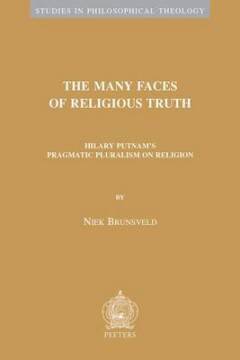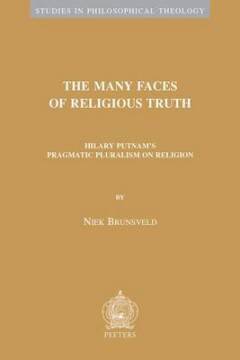
Bedankt voor het vertrouwen het afgelopen jaar! Om jou te bedanken bieden we GRATIS verzending (in België) aan op alles gedurende de hele maand januari.
- Afhalen na 1 uur in een winkel met voorraad
- In januari gratis thuislevering in België
- Ruim aanbod met 7 miljoen producten
Bedankt voor het vertrouwen het afgelopen jaar! Om jou te bedanken bieden we GRATIS verzending (in België) aan op alles gedurende de hele maand januari.
- Afhalen na 1 uur in een winkel met voorraad
- In januari gratis thuislevering in België
- Ruim aanbod met 7 miljoen producten
Zoeken
€ 74,00
+ 148 punten
Omschrijving
Religious statements can be true or false, and are not merely arbitrary or personally meaningful. That is the core thesis of this work in pragmatist philosophy of religion. Other contemporary approaches are deficient, as they have problematic ways of understanding truth and experience. The argument in this study draws on Hilary Putnam's work in such fields as ethics, epistemology, philosophy of language and philosophy of mind. Influenced by Ludwig Wittgenstein, however, Putnam doesn't fully acknowledge how religious statements, similar to other statements, depend on an interaction of our language and the world. This would make religious truth a matter of convention. Drawing on another source of inspiration for Putnam, William James, Niek Brunsveld shows how religious claims can have truth value.
Specificaties
Betrokkenen
- Auteur(s):
- Uitgeverij:
Inhoud
- Aantal bladzijden:
- 281
- Taal:
- Engels
- Reeks:
- Reeksnummer:
- nr. 57
Eigenschappen
- Productcode (EAN):
- 9789042933774
- Verschijningsdatum:
- 3/01/2017
- Uitvoering:
- Paperback
- Formaat:
- Trade paperback (VS)
- Afmetingen:
- 160 mm x 239 mm
- Gewicht:
- 498 g

Alleen bij Standaard Boekhandel
+ 148 punten op je klantenkaart van Standaard Boekhandel
Beoordelingen
We publiceren alleen reviews die voldoen aan de voorwaarden voor reviews. Bekijk onze voorwaarden voor reviews.









